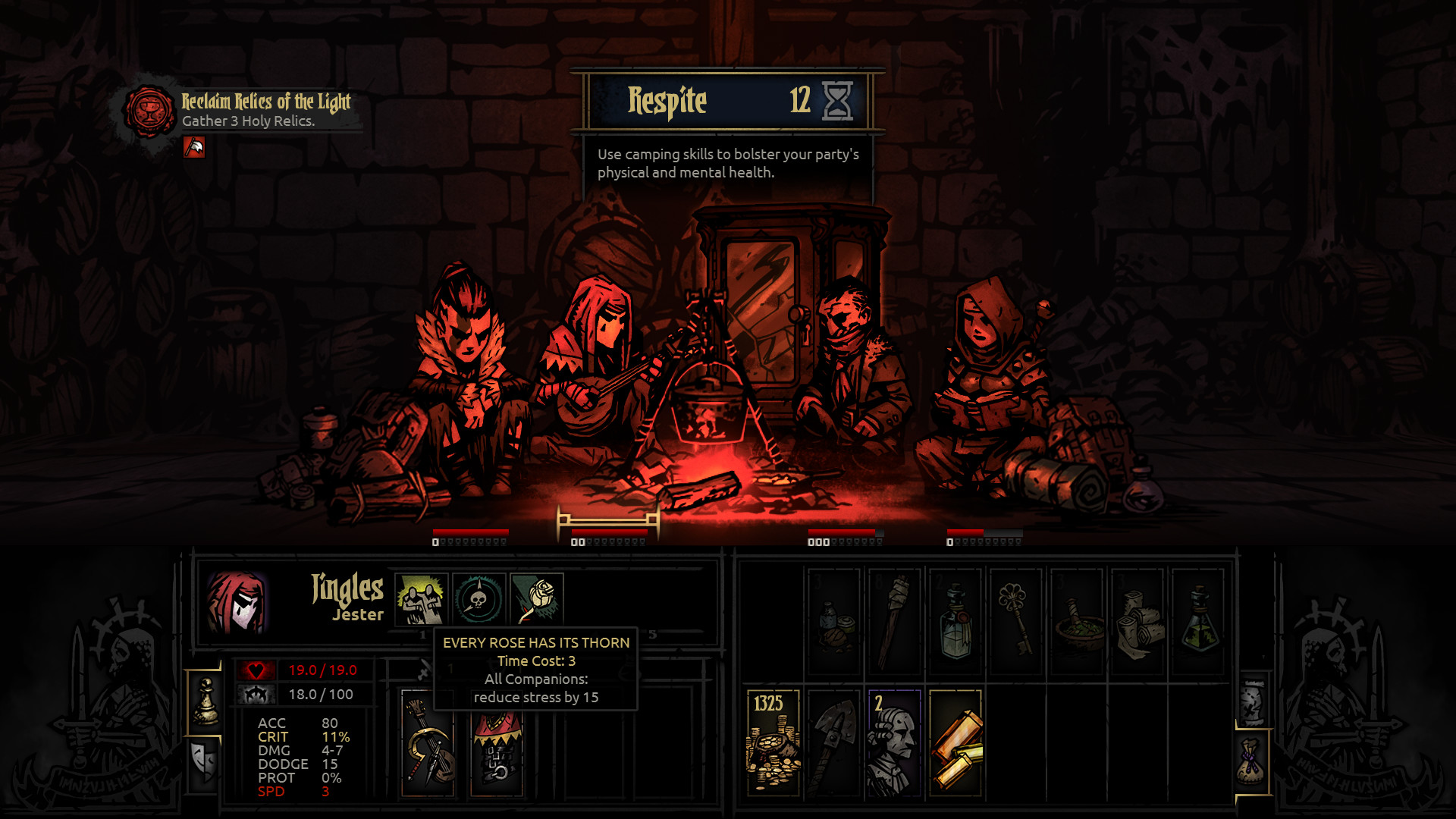

Finding which four-person party combinations work best is a trial-and-error process that will result in many failed campaigns. There are several character class types in Darkest Dungeon, and each of them have their own unique skillsets.

Of course, players can reduce stress between each adventure by paying for activities in the town, or even remove some negative traits at a sanitarium, but those are costly endeavors - and picking up new heroes is free, which means its far more cost-effective to throw troubled people out than it is to fix them proper.

Too much stress leads to the development of negative traits, and players will find themselves dismissing many a hero just because they picked up too much psychological baggage. As heroes gain experience in combat, they will also be collecting stress from enemy encounters. To be successful at Darkest Dungeon, players will have to become heartless managers who send countless heroes to their untimely demise in one of the games five varying dungeons. Now that it's here, the roguelike genre has a bright and shining example of how a title can bring a unique concept and a breath of fresh air to an oft-repetitive game type, and it's evident one of the sleeper hits of the year didn't waste much time in arriving this 2016. The game had to go through its own series of hurdles before it could even present its challenges to players: Darkest Dungeon went through a wildly successful Kickstarter campaign, and had almost two years of development time before finally going gold this week after plenty of fan feedback and a a foreboding trailer. Gamers who enjoy the challenge of a good roguelike or a great turn-based roleplaying game should look no further: Darkest Dungeon has finally arrived. A Kickstarter campaign from two years ago has led to the long-awaited release of Darkest Dungeon, one of the best roguelike RPG titles we've ever played.


 0 kommentar(er)
0 kommentar(er)
